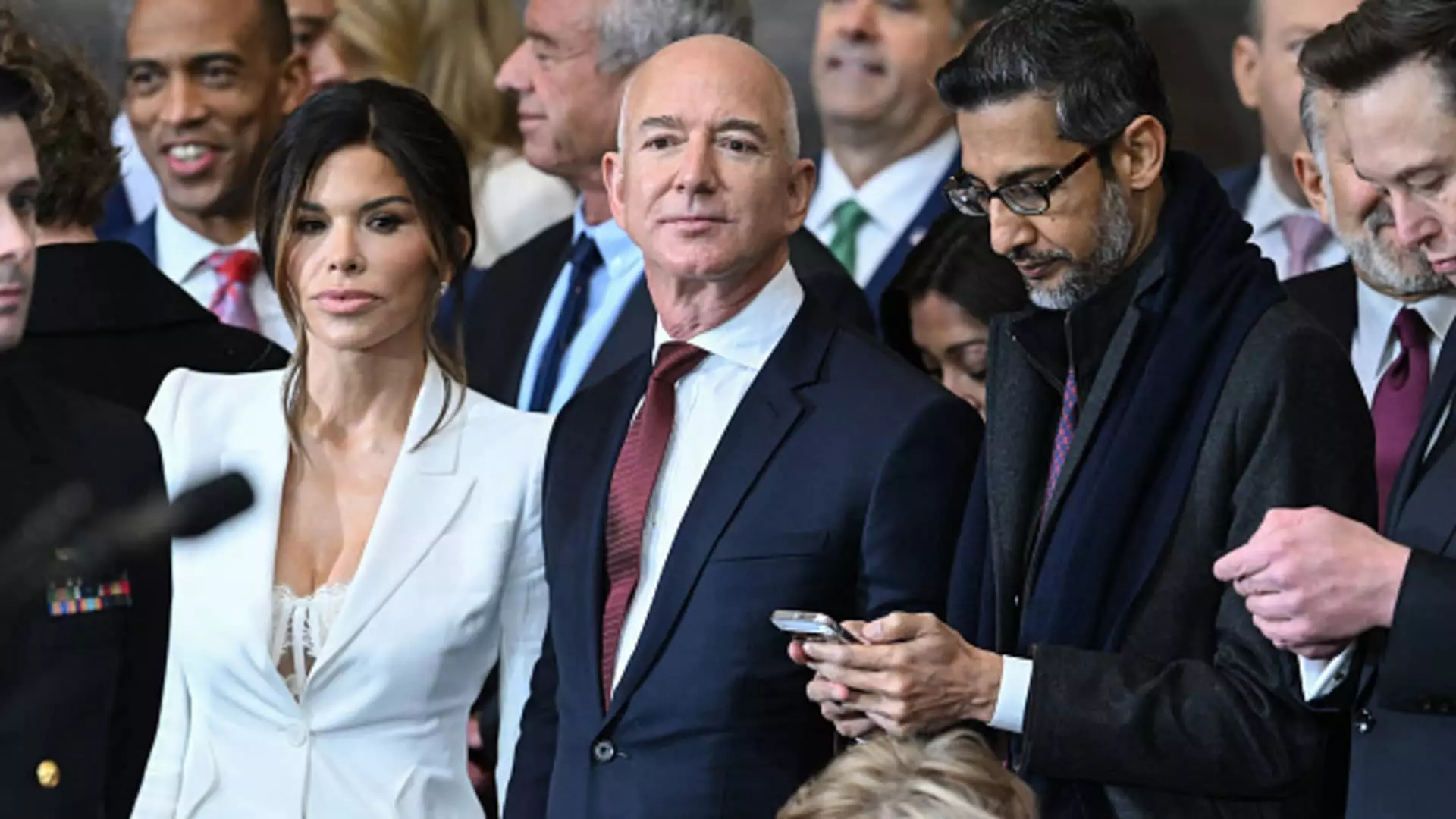In a bold move that has sparked intense debate within media circles, Jeff Bezos, the founder of Amazon and current owner of The Washington Post, announced that the newspaper’s opinion pages will now focus solely on championing “personal liberties and free markets.” This directive not only marks a significant shift in editorial policy but also raises questions about the role of ownership in influencing journalistic independence and diversity of thought.
In a message sent to staff and shared publicly via social media, Bezos articulated his vision for The Washington Post’s opinion section, stating that it would prioritize perspectives aligned with his beliefs in free markets and personal freedoms. This announcement has been met with mixed reactions, with some applauding the clarity of purpose, while critics interpret it as a narrowing of the public discourse. By pledging to forego publishing dissenting views, Bezos has pivoted away from the traditional model of journalism that values diverse opinions as vital to a healthy democratic society.
This decision is particularly striking given that it reshapes a fundamental aspect of a major news outlet’s operations. Traditionally, the opinion sections of newspapers are designed to be a forum for debate, engaging with a wide spectrum of viewpoints. In Bezos’s statement, he expressed confidence that the current media landscape was adequately covered by other platforms available on the internet. However, this raises the question: Is the role of a newspaper to simply mirror existing conversations or to challenge prevailing narratives?
Reactions from Within the Post
The internal response at The Post has been divided, with significant pushback from employees and former staff members. Influential figures such as Marty Baron, ex-editor of The Post, openly voiced their disdain for this editorial shift. Baron’s criticism underscores a growing concern that such top-down directives may endanger the independence of journalists striving to uphold journalistic integrity.
Moreover, the resignation of David Shipley, the editorial page editor, further illustrates the turmoil within the organization. Shipley’s departure suggests that many within the editorial team may not align with Bezos’s vision, indicating resistance to a more ideologically constrained opinion section. It also hints at the possible exodus of staff members who prioritize editorial independence and numerous perspectives.
The implications of Bezos’s new editorial policy extend beyond The Washington Post itself. Such a shift has the potential to exacerbate the already fractious relationship between media outlets and the political sphere, particularly with figures like former President Donald Trump, who has frequently derided the media as “fake news.” By disregarding the publication of opposing viewpoints, Bezos risks reinforcing the narrative that major media hinders broad political discourse, which could alienate a significant portion of the readership.
In an era where the credibility of news platforms is under constant siege, Bezos’s move could further erode trust in The Post as a neutral source of information. The decision to eliminate opposing views raises concerns about the potential for biased reporting, which is particularly significant in the lead-up to a major electoral event like the American presidential elections.
By creating an editorial policy that favors a specific set of ideologies, The Washington Post runs the risk of becoming an echo chamber, where only compatible viewpoints are amplified, while dissenting perspectives are silenced. This self-imposed limitation contradicts the media’s role as a watchdog, tasked with scrutinizing power, holding officials accountable, and providing a platform for civil discourse.
News coverage becomes richer when various viewpoints are debated rigorously, and the effort to stifle opposing opinions could result in a decline in the quality of public debate. As a leader in the media landscape, The Post has a responsibility to foster a culture of inclusivity in its opinion pieces rather than narrowing the scope to fit a specific narrative.
The Future of The Washington Post Under Bezos
As the search begins for a new Opinion Editor who will embrace this freshly outlined editorial direction, the future of The Post hangs in a delicate balance. Staffers have already demonstrated the potential consequences of Bezos’s directives, with a number resigning in protest. This internal unrest may signal a fraught environment that could impact the quality of reporting and the morale of remaining journalists.
Moreover, with the ongoing scrutiny of Amazon’s business practices and potential antitrust issues looming over Bezos, the intertwining of his business commitments with media governance raises ethical concerns. The intersection of business interests with media narrative control presents challenges not just for The Post, but for the broader epistemic environment of journalism.
While Bezos’s intention to champion certain values may stem from a genuine passion for those ideals, the implications of his decision create a precarious situation for one of America’s most influential media platforms. Balancing personal beliefs with the responsibility of delivering a fair and multifaceted narrative remains a crucial challenge as The Washington Post embarks on this new ideological path.

